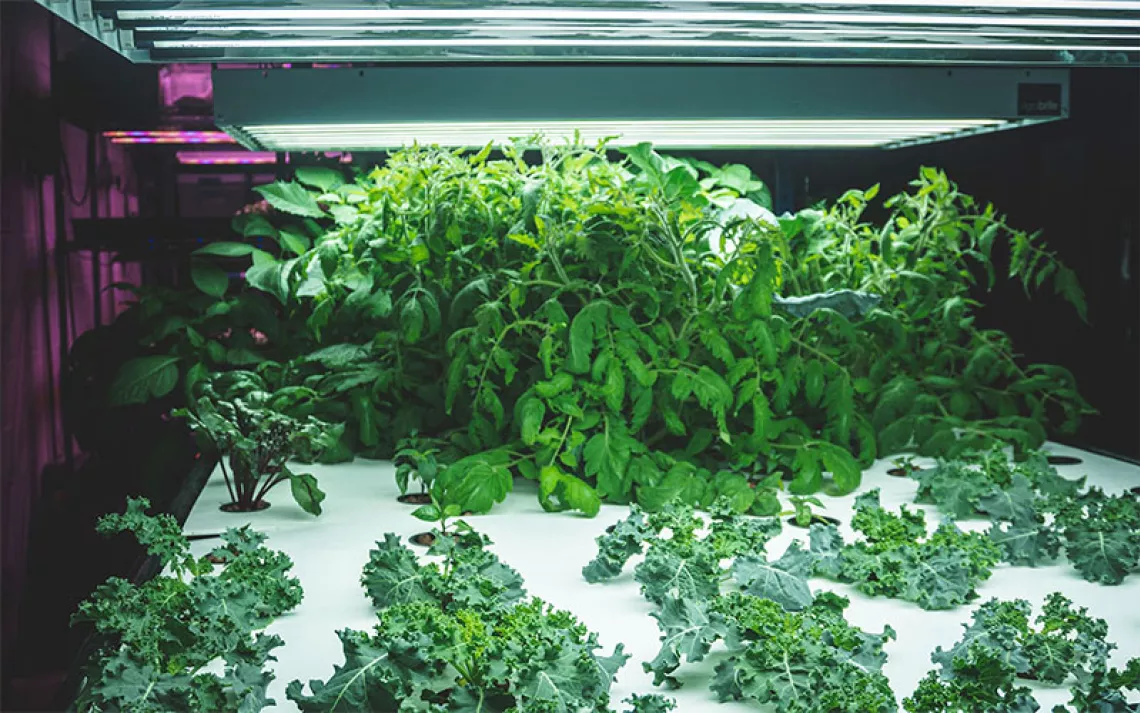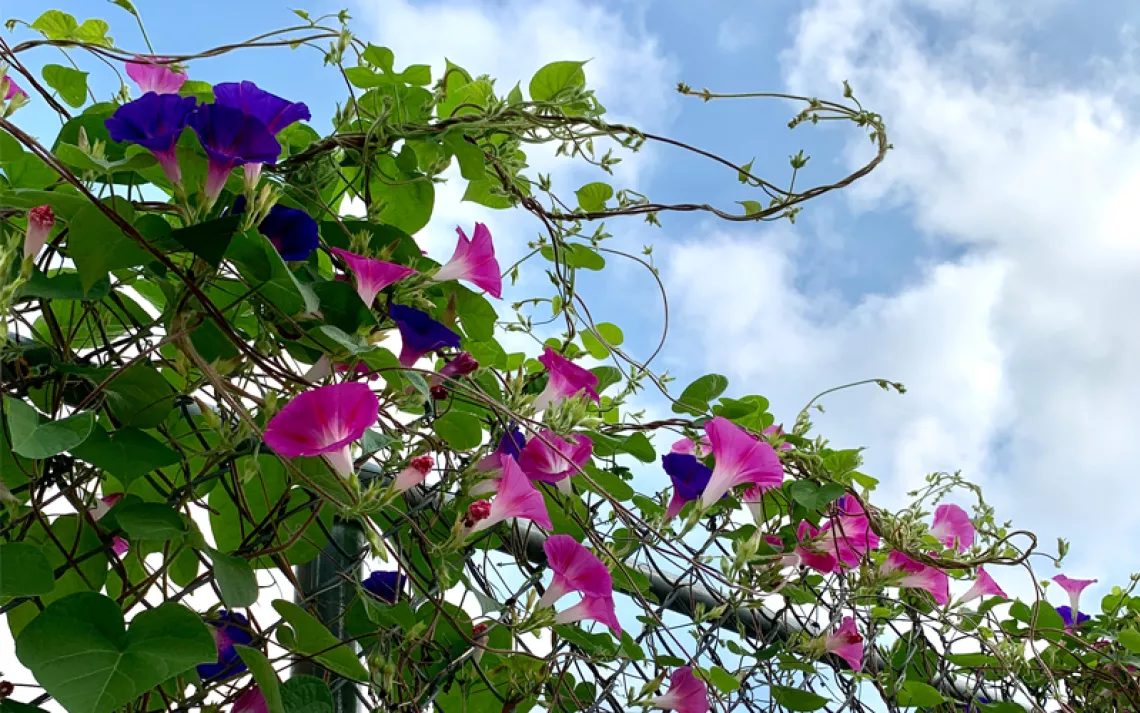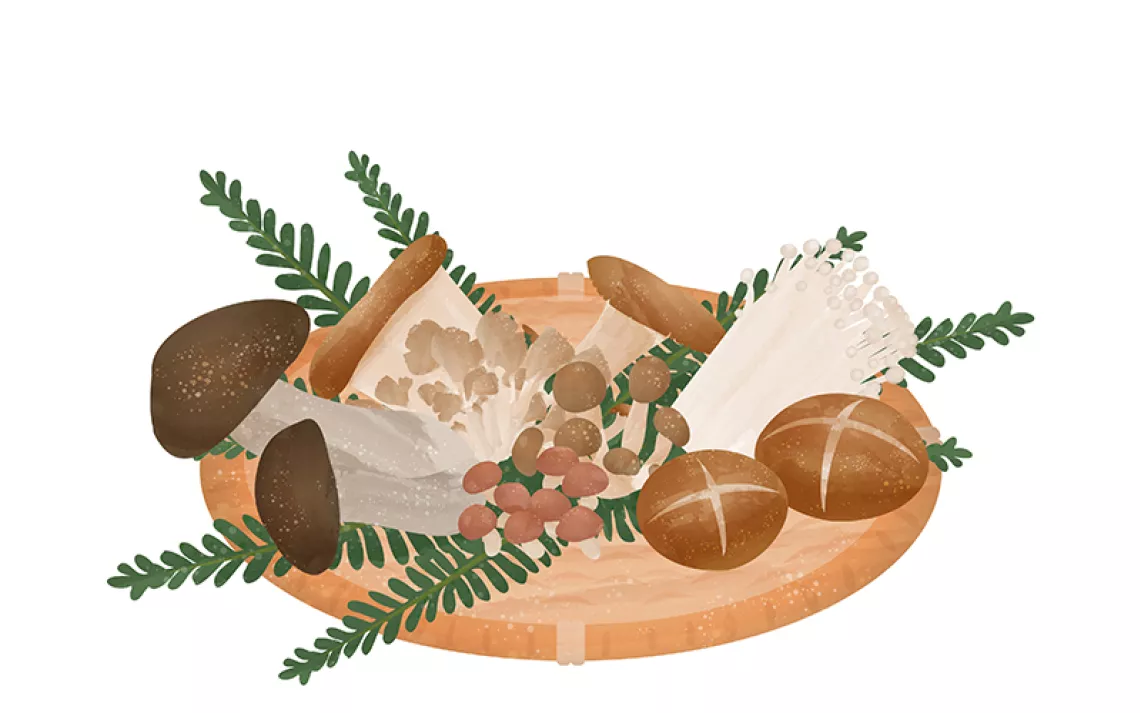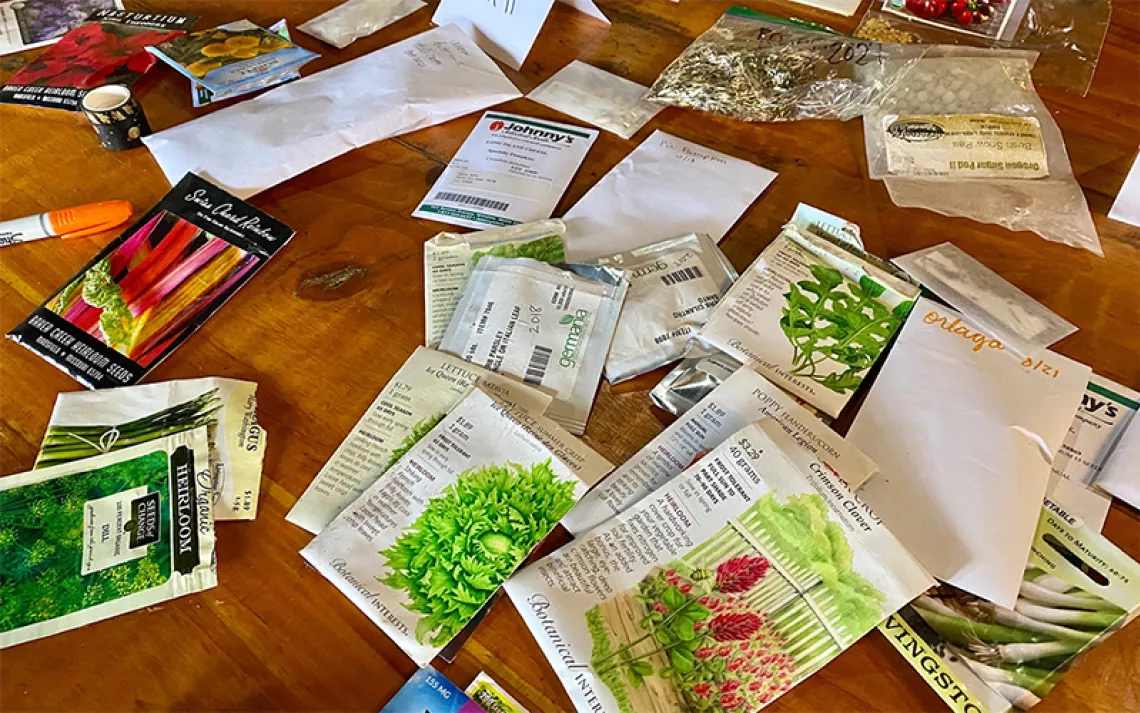Urban Tilth’s Doria Robinson on Richmond and Climate Adaptation
This agriculture nonprofit is small scale, but its executive director has big ideas

Photos by Wendy Becktold
Editor’s note: This interview has been edited for length and clarity.
I am a third-generation Richmond resident. Growing up here in the 70s and 80s was really intense. There were drugs, gangs, drive-by shootings—just a lot of violence, a lot of compacted trauma on top of being poor. It makes a huge impact on you if all the kids you grew up with on your block are dead. That's what happened to me. My second year in high school, there was a shooting during lunch. I walked off campus and didn’t come back. Eventually, I ended up at a school in Berkeley. I had always been a good student, but now I was getting Ds and Fs—not because I didn’t try, but because what I got in Richmond was not real education. When I saw my first report card, I remember just being mad. I started looking at Richmond in a different context, and thinking to myself, “What is going on there?”
I went to college in Massachusetts, where I worked on the school farm. I had always had an interest. My grandfather was a minister who came up from the South with 17 other families. They pooled their money and helped each other buy houses, and they bought property and built a church. Then they bought 300 acres of ranch in Fairfield. They weren't rich people at all. In fact, they were extremely poor. It was always this big lesson for me that a lot of people together, even if they are poor, can do a lot. You actually do have resources if you can trust each other enough and create some good rules for acting collectively.
After I graduated, I didn’t want to go back to Richmond. I moved to San Francisco and did the dot-com thing for a while. Then I was like, “What am I doing? People in San Francisco don’t need me here.” I got a job in Richmond with the Watershed Project doing community-driven restoration projects around the creeks here and in Oakland. One day, I got an email from Park Guthrie, the founder of Urban Tilth. The old railroad tracks had recently been converted into the Richmond Greenway Trail. It was 23 blocks long and on the sides, there were these big swaths of land that the city didn't have money to do anything with. Park said, “There could be gardens on either side. It could be a place where people gather instead of a place where people fight.” I wrote back and said I wanted to help. That was around 2004. A group of us organized second-Saturday volunteer days to build gardens on the Greenway. We also helped create an adopt-a-spot program because the city didn't have a way for people to help maintain public land.
Not long after that, Guthrie invited me to be co-director of Urban Tilth. I took over fully around 2007. At that point we had one part-time staff person. Now we have 32 staff members. We have seven major program areas, two youth develop and training programs, and seven gardens and small farms. Through our Community Supported Agriculture program, we are growing and distributing a considerable amount of locally grown food. Right now, we serve 150 families. We always have a waiting list.
The North Richmond Farm is three acres. It’s our newest site. We went through a long process to get this land transferred from the flood control district to the county. We had to change the general plan of North Richmond to allow for urban agriculture, which took a year and after that, we went through another yearlong process to get a lease. Then we worked with the county to find the funding to put in general infrastructure—we had no water, no power. It was just a vacant lot. For almost the past two years, we’ve been clearing, cleaning, and planting to grow soil, because the soil here was just destroyed. It was crushed rock, with no nutrients, which is such a metaphor for Richmond in general. You have all of these things that have just been completely undernourished—people, places—and we're one of the forces that are trying to bring life back, putting nutrients back into the soil, putting people back on the land and in the process hopefully waking people up.
The Chevron refinery has always been a part of life here. When an incident happens, there's this built-up anger, but also this feeling of "what can you do?" I remember once when I was little, the sirens went off. We woke up and the sky was red. There had been an explosion at the refinery. My mom came in and told me to close the window. The air was putrid, and our eyes were burning. The paint on our car got eaten off, so later, my mom went down to file a claim. She got like $500 dollars to repaint the car. When she finally got the check, I remember her putting it down and saying, “I wonder what this did to our lungs. How are they going to pay us for that?”
The most recent refinery fire in 2012 was a big turning point for Urban Tilth. We were finishing up the sixth year of our summer apprentice program. We had 40 youths working at six different sites. Everybody’s with each other for long periods of time—kids that don't normally hang out with each other, Latinos and blacks—and they really get to know each other. It's an intense experience. We were a few days away from graduation and the fire happened. This black cloud of obviously toxic crap just moved over all the gardens leaving a gooey film on everything. The kids were pissed. Everybody came together in this big council, and we decided that we had to rip all of the food out. We didn’t feel good about feeding it to anybody. The kids brought a portion of it to the Chevron community meeting at City Hall and dumped it on the stage.
It woke us up as an organization, and showed us that when you reconnect people with land, people start to realize that it does matter what's in the air, it does matter what's in the water, especially if you're feeding it to others and putting it in your mouth. The kids were asking questions like, “Why does Chevron have the right to do this? Why is there no accountability? How did this happen?” And so we started to teach more about environmental law and environmental justice. And that led to climate change.

Robinson at the North Richmond Farm
We're at a place now where folks are not only wanting to do better for themselves—try to eat better and have access to healthy things and share that with their neighbors and their families—but they're also wondering about the future. What is it going to be like in 10 years? What are our kids going to be experiencing? Climate change is a huge threat to low-income people. If somebody loses their mansion to a fire in Malibu, it's terrible, but they can recover. If you are a low-income elder living in Paradise and you lose your home to fire, you're homeless. Climate change won't just be about burning up in a fire or breathing in smoke, but about the aftermath of trying to relocate people.
Agriculture is a huge contributor to carbon emissions—all the petrochemicals that are used in preparing the fields, and for running all the tractors and machines—so food is a place we need to be working now. We need regional local food systems, not just because of the need to reduce the climate costs of transportation, but also for resiliency. If something goes wrong, people need to be able to get food, and it can't come from some long chain that is dependent upon systems that may break. So we're asking ourselves, “How do you shorten these chains?” and we’re working to create more direct relationships to producers in our area.
The two most direct impacts of climate change here in Richmond will be sea level rise, because we're so close to the marsh, and we have really high water table, and hotspots—areas of exaggerated heat from blacktops and not enough greenery. There are two kinds of climate adaptation—one that is just physical and it gets done however it gets done. You hire a company to raise the levees. Then there's climate adaptation that takes into account that if you raise the levees and make this place really attractive to people to live in, you're going to drive up prices and make it unaffordable for some people. Those people will be pushed into the places where no one is thinking about climate adaptation right now because they don't have that political leaning. If you don't match the climate adaptation efforts with social justice and economic justice efforts, there'll be new low-income communities in the places that were not prepared.
If we really want people to be able to be resilient, we have to help them improve. Urban Tilth has a training program for youth from North Richmond—young people who are not necessarily on a college track—to learn how to do watershed restoration work and green infrastructure maintenance and installation. If we're going to do green infrastructure as a way to disrupt heat islands, then let’s make sure that that's a well-paid job, so people can keep their heads above this storm. Equity and social and economic justice need to be baked into every initiative or else we'll be exacerbating old problems and creating really big new problems. There will be a few people who are safe, and then a lot more people who are not. I don't even want to think about the social unrest that could come from that kind of situation.
We also need some radical thinking around things like building code laws. We know drought is going to be an issue. We've known that for a very long time. Why isn't it in California Building Code to do water catchment and gray water systems? That’s a potential job to install that stuff—retrofitting houses and building it on new houses. It becomes a new area of expertise. Plumbers probably weren't a big thing until indoor plumbing came along.
I am not convinced that even under climate change, there will be a lack of actual food, but there will be even more unequal distribution of and access to food. So get the control of food out of the hands of the few. If a handful of corporations are controlling the supply, it becomes very advantageous for them to have prices go up, or to act like there isn't enough. We need to decentralize food production so people can be fed, and be creative, do what human beings do, which is evolve and innovate with the situation. The more people who can say, “I'm really interested in innovating on this type of peach, cabbage, potato,” the better. That means more people on the land, more farmers, more folks watching to see where there'll be openings to do new things.
People constantly point at community-based solutions to climate change and say they will never work, they’ll never scale. I keep saying, “Well, yeah, if you give us two dollars we're not going to be able to scale up to feed the world.” Don't tell us that the idea that we have won't work until you actually resource it. Don't say it will fail because we haven't actually tried it yet.
 The Magazine of The Sierra Club
The Magazine of The Sierra Club



